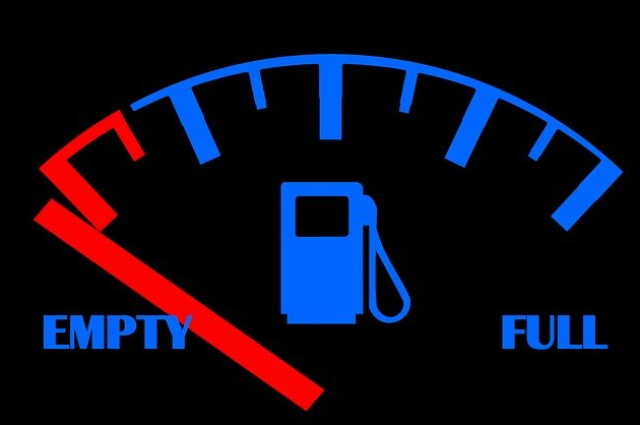
Image by Gerd Altmann from Pixabay
Fuel not only runs the wheel but also runs the economy. It was supposed to have been done long ago by comparative cleaner alternatives. But it stood the test of time by hook or crook and now continues to be an indispensable part of our lives. Howbeit, fuel prices inching towards skyrocketing highs have laid the cornerstone of punching holes in the consumer pockets. Scores of price revisions in a dozen weeks have now made petrol retail at triple-digit for a single liter.
The Covid-19 pandemic had hit the oil and gas production globally, with its demand falling steeply to an 18-year low. The price of Brent Crude too dipped in accordance. But its benefits did not pass to the citizens. A spiral surge in fuel prices had a detrimental effect on financially strained households; they had to change their priorities on spending by cutting back expenditure on essentials.
The pandemic had even shrunk the volumes of umpteen businesses. An upsurge in fuel prices acting as an unceasing hammer blow has made it difficult for people to operate their business at thin margins. Swelling fuel rates also had a damaging ripple effect on an array of already stressed sectors like MSME, Agriculture, Transport, and many more.
Diesel is the most widely used running fuel in India. Diesel prices are now catching up with petrol, thereby leading to increased freight charges. Transportation costs get embedded into all costs, thereby pumping up inflation. With the mechanization of the agricultural sector, farmers, who are more dependent on diesel-oriented pumps, now face a double whammy.
Now, the world has slowly started moving ahead with the easing of lockdown restrictions. When the economy is quickly recouping its lost ground, the demand for crude oil has commenced increasing. But the failure of OPEC+ to reach a concrete solution on easing Brent Crude production has led to a sharp rise in crude oil prices. Fuel costs have been ratcheted up to current levels by the combined effect of increasing crude oil prices and heavy tax impositions.
A nation that meets 82 % of its fuel demands and 53 % of its gas requirements through import; levies the highest fuel tax in the world. More than half the price consumers pay per liter of petrol or diesel goes to tax, the lion's share of which goes to the central government. Percentage-driven dear state taxes have also contributed to this exorbitant hike in fuel prices.
Such zooming fuel prices continue to dent the pockets of the customers. Even RBI has called for a cut in fuel price hikes to curb inflation. Indeed, the situation is worrisome but what is more daunting is the immodest attitude of the government. As was expected, the government is full of explanations to justify its inability to deal with such a grave affair.
On one front, the people in power are busy blaming the previous government for having left behind oil bonds worth crores, the interest of which acts as a burden on the lowest common denominator. On another front, they say that fuel prices are a function of international crude prices. Since global fluctuations in oil prices are not in their control, their hands are therefore tied. A commoner speaks to disagree, but the government pays no heed. It is easy money for the government but a slow poison for us.
Even the allies of the government do not endorse this stand. The opposition is raining its gun on the government but has collectively failed to mobilize public opinion. However, people who defend this view think that increasing fuel rates could help people move faster towards cleaner alternatives. At least they could have tried to shine through the quality of the argument. Surprisingly, senior members of the Bollywood fraternity, who once sounded critical of the fuel price spike, now seem conspicuously silent.
The government imposes heavy excise duty on crude oil import; to shore up revenue in response to the pandemic-induced slump. Astonishingly, the government this year has earned more money from fuel tax as compared to income tax. It comes at a time when corporate taxes here are among the lowest globally.
Relief on this front is unlikely soon as the government seems reluctant to slash taxes. Bringing petrol and diesel under the ambit of GST has been spoken of as a panacea for high fuel prices. But the catch lies here! The Centre and States will have to let go of a crock of gold as at the maximum, all they could charge would be 18 percent tax on crude prices apart from dealer commission. Hence, there are no immediate plans on the anvil to do so.
On the road to a V-shaped economic recovery, it is acceptable that a government has to depend on tax to fill the coffer. Yet, there is indeed a limit to how much you can squeeze out of them. Fuel remains a cash cow for the government, both at the center and at the state. Who will want to let go of a cash cow out of its hand? The pandemic incited lockdown caused mass layoffs and heavy job losses; the relative burden on the poor is more. A timely and coherent response is the dire need of the situation. After all, the government has sought your votes; not to let you reel under financial strain.
